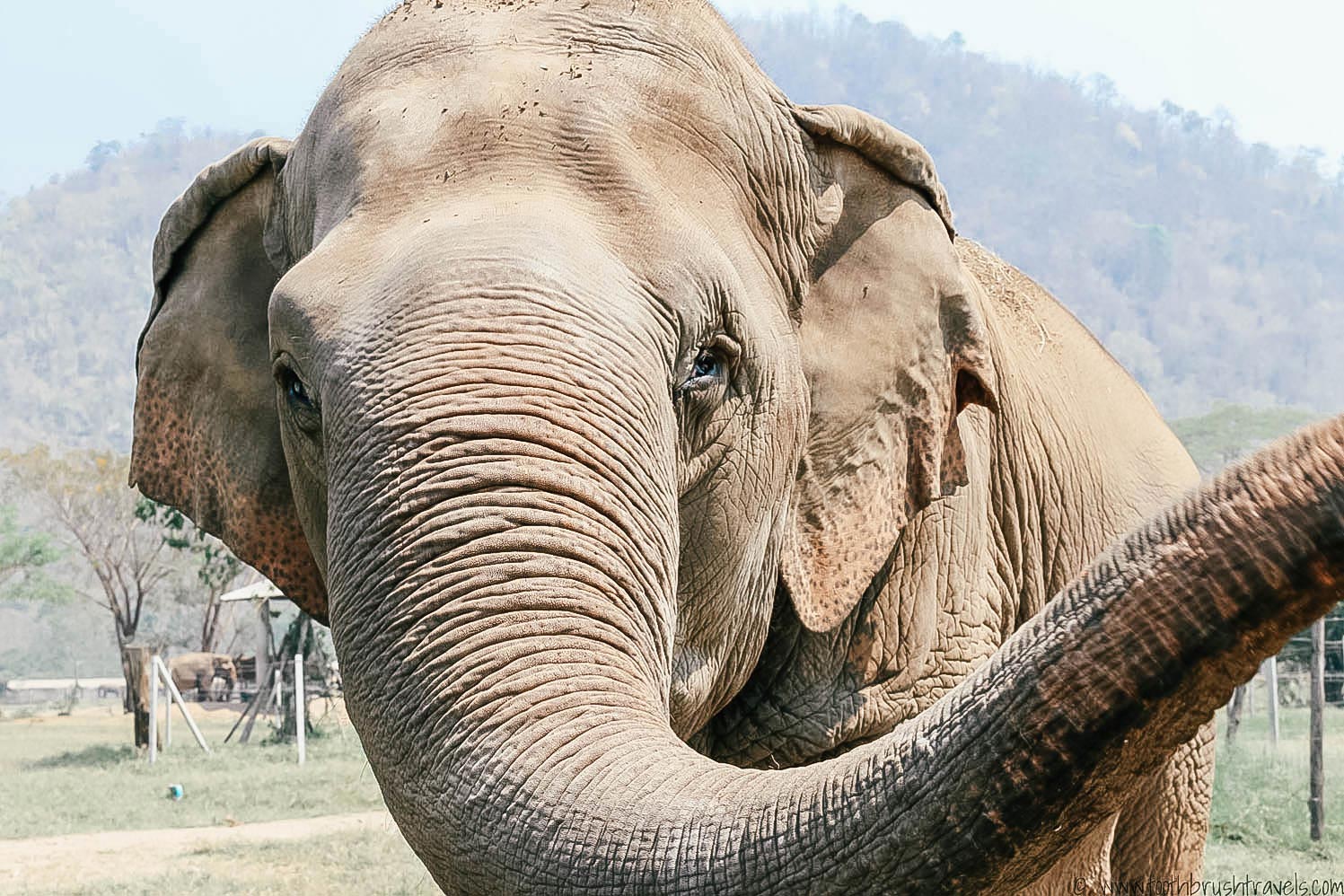The first time I saw an elephant was in Chiang Mai. I had laid eyes on elephants before then, in magazines and at the zoo, I’d even stood in front of one when I first arrived in Thailand. But it wasn’t until March 2014 when I visited the Elephant Nature Park in Chiang Mai, that I actually saw an elephant… Grazing, wandering, and generally just being an elephant.

I stumbled across the Elephant Nature Park a few months prior when I learnt about how shockingly elephants are treated in Thailand and went on the Internet to research places that supported and implemented animal rights. The Elephant Nature Park was a popular result, and after reading the stories of people that had visited, I knew why.
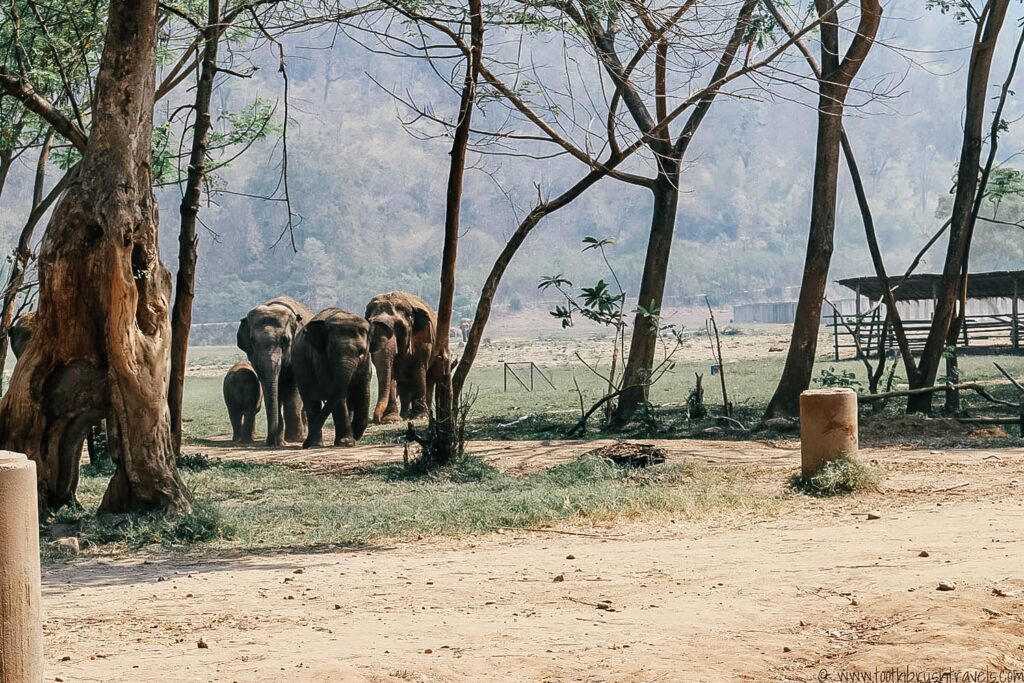
Founded in 1995 by Lek Chailert, the Elephant Nature Park is home to over 30+ rescued elephants and is doing something nobody else is trying—letting the elephants roam free, with tourists being spectators, not dictators. Lek doesn’t believe in “breaking” elephants for tourist rides and photographs, she believes that elephants should be elephants—and with the guidance and persuasion of a few (hundred) bananas, she’s proved that elephants don’t need to be beaten to be compliant.
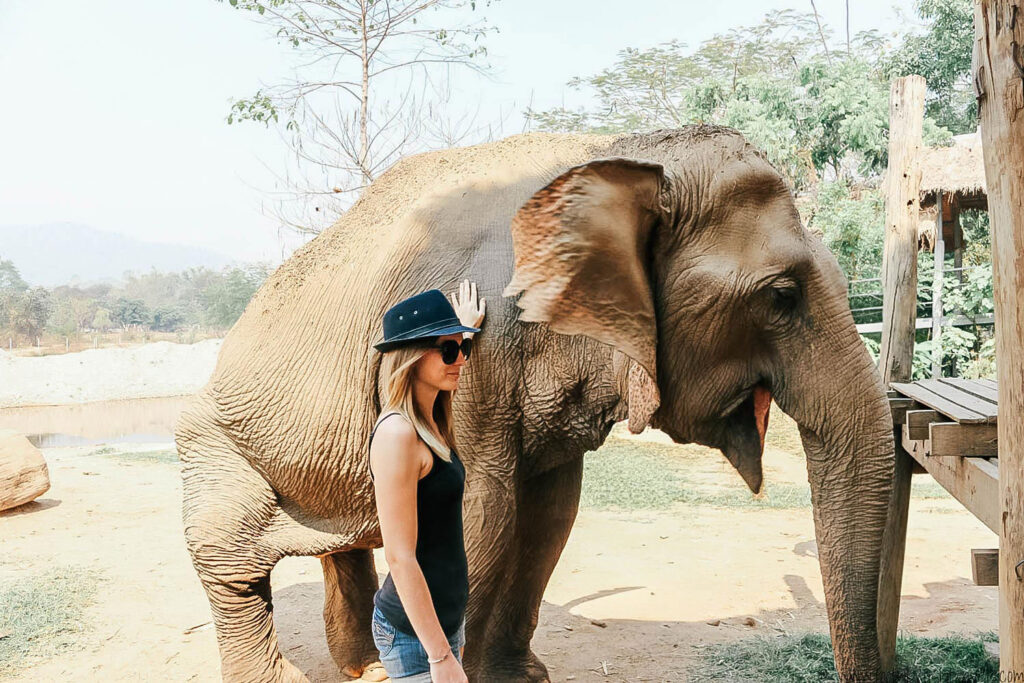
Lek is a kind and compassionate woman who cares deeply for these gentle giants, and she goes to great lengths to ensure that the elephants are cared for and always surrounded by kindness. Bull hooks are banned and mahouts (the elephant carer) are only employed if they agree to never use punishments or negative reinforcements. Lek doesn’t believe in controlling elephants, she believes in guiding them, and in the past she has even had to forcibly drive out mahouts who disagreed with her ethos and could not follow her simple rules.
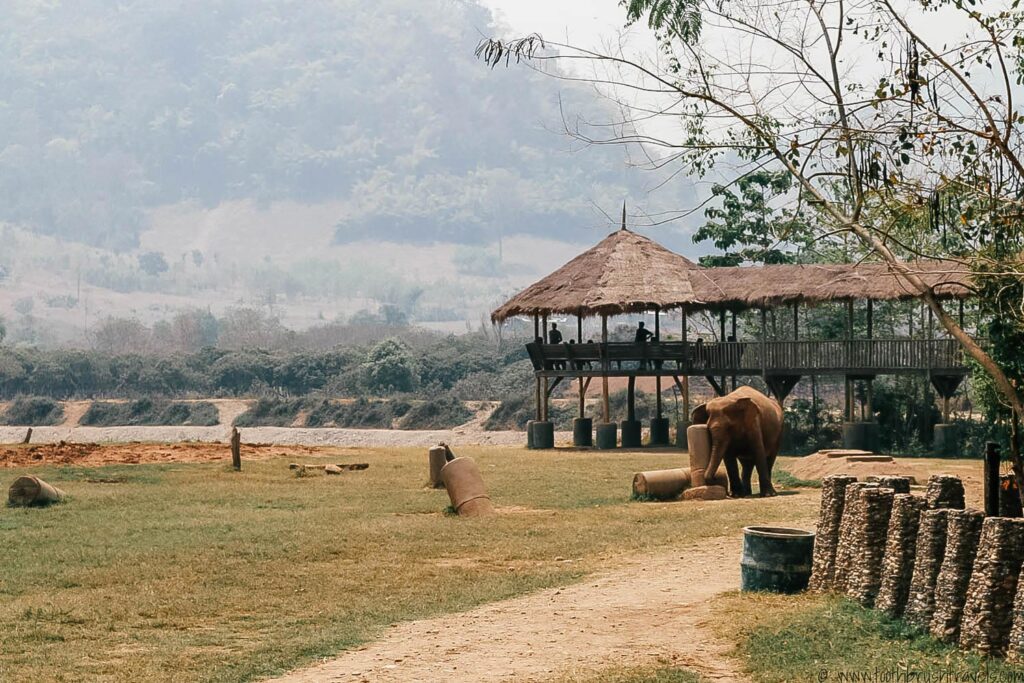
With the exception of the babies who will never know the sharp pain of a bull hook or the emotional turmoil of the Phajaan ritual because they were born at the park, almost each and every elephant living at the Elephant Nature Park has come from a life of hardship. But thanks to Lek these animals will never again have to face the abuse or hard work. She has created a place where animals can be themselves. No more chains, no more performing and no more pain.
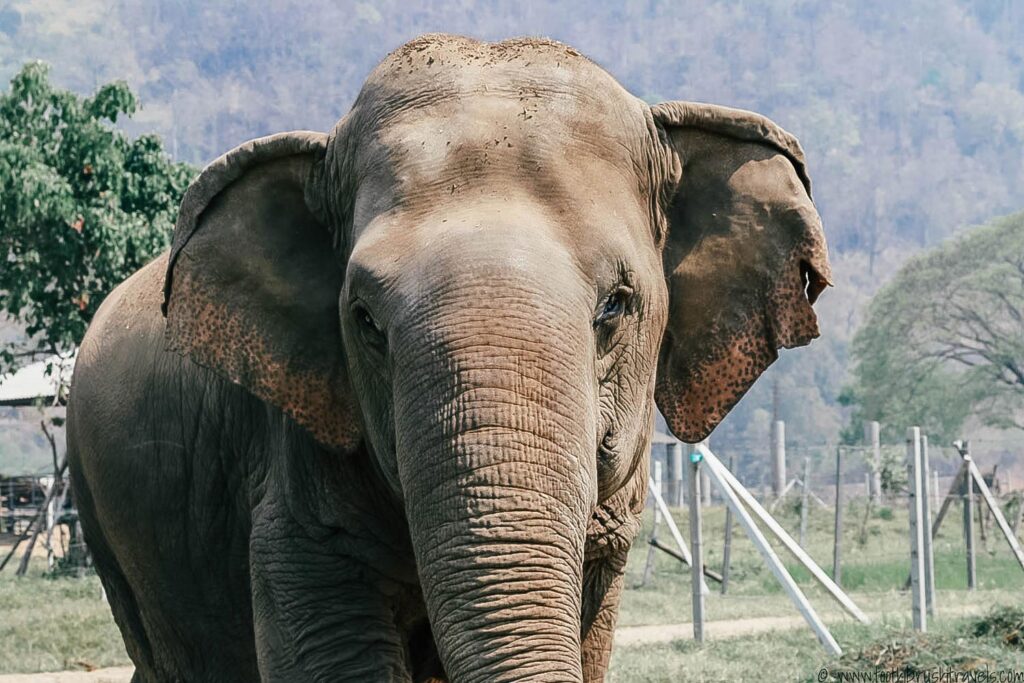
Set in a natural valley, bordered by a river and surrounded by forested mountains, under casual supervision from their mahouts, the elephants have free roam of the park during the day, and at night they sleep in large pens with their self-chosen herd.
It took a while before the elephants trusted one another enough to form herds. But once bonded, their relationships became unbreakable. An example of this is Mae Perm and Jokia.

Jokia was an elephant that worked in the logging industry, whilst pregnant.
Close to the end of her two-year pregnancy, Jokia suffered a miscarriage whilst pulling a log up a steep hill in the jungle. Because she was working, Jokia was denied the chance to check on her baby and was forced by her mahout to leave her beloved baby behind. Traumatized and grief-stricken Jokia refused to work, and as punishment for her refusal, Jokia was blinded in one eye.
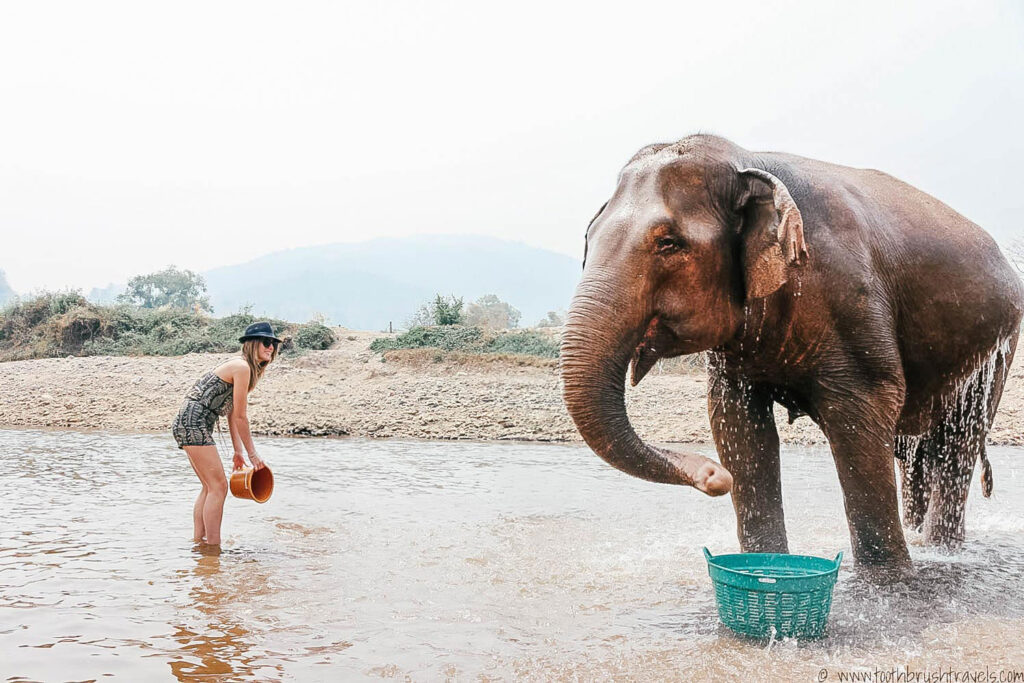
Lek later found Jokia was still being forced to work, despite her blindness, and when she asked the mahout why, he replied “She’s young.” Lek’s heart broke and so she bought Jokia from the mahout and bought her to the Elephant Nature Park where she could retire. A few years later Jokia met Mae Perm, and ever since the two have been inseparable, with Mae Perm leading Jokia around by her trunk, and stopping as Jokia roams. Mae Perm is both her best friend and her eyes, and the two are completely inseparable.
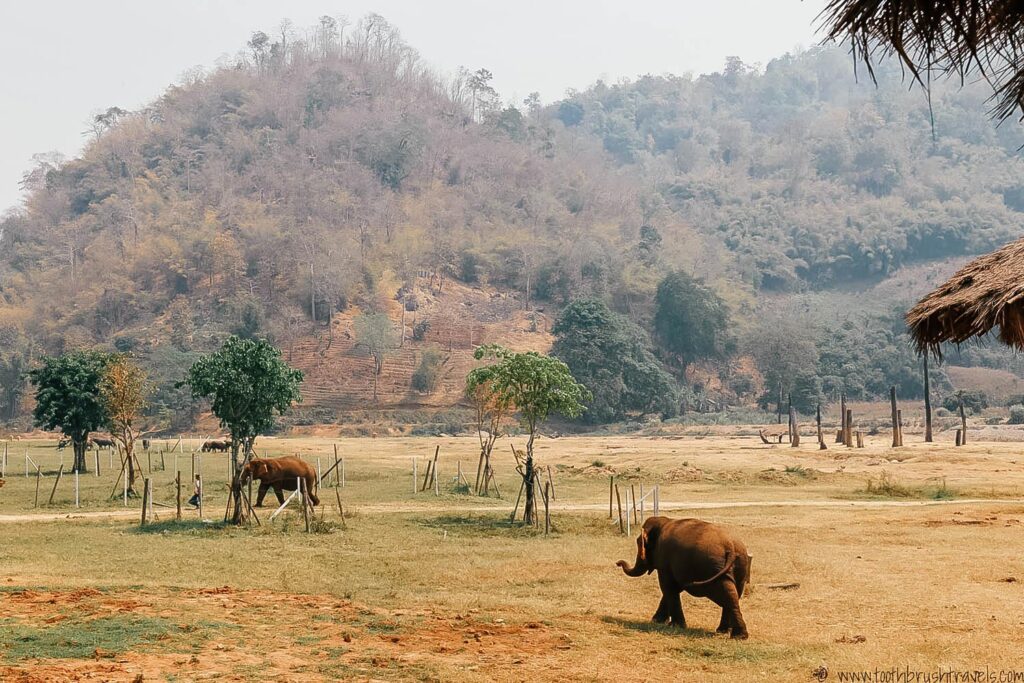
But despite the park’s success, the support Lek receives from her government and local community is non-existent. Going against hundreds of years of cultural tradition and promoting elephant welfare and conservation has made her extremely unpopular and as well as sabotage attempts on the park, she has also had threats on her life.
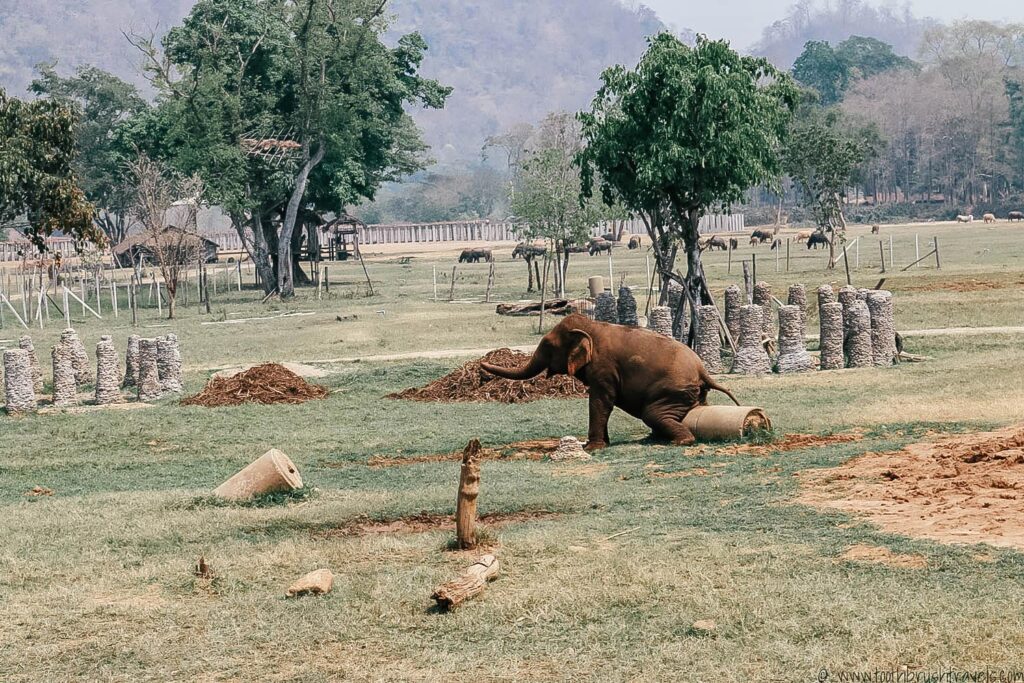
Luckily the international attention she receives is much more positive, and Lek has devised a brilliant system which allows the park to continue its great work, without it coming at the expense of an elephant’s happiness or integrity. She’s enabled people to volunteer at the park. To both interact with the elephants and contribute to the hours of hard work that go into caring for them. It does cost to volunteer (£50 for a day visit), and as a result only attracts a certain crowd, after you won’t find many people that want to spend £50 to be around elephants all day, mucking out, cleaning up poop and feeding elephants, when for £14 they can hop on the back of an elephant, grab a selfie and be done within half an hour. But the volunteering system enables people to spend time with the elephants instead of exploiting them. It offers those who don’t believe that humans reign supreme over animals the chance to enjoy quality time. It offers people a choice, and a chance to stop and think. A chance to understand that just because we CAN ride them doesn’t mean we should. And just because elephants can be taught to paint, stand on their heads or made to trek through jungles, doesn’t mean they should. It offers people an alternative.
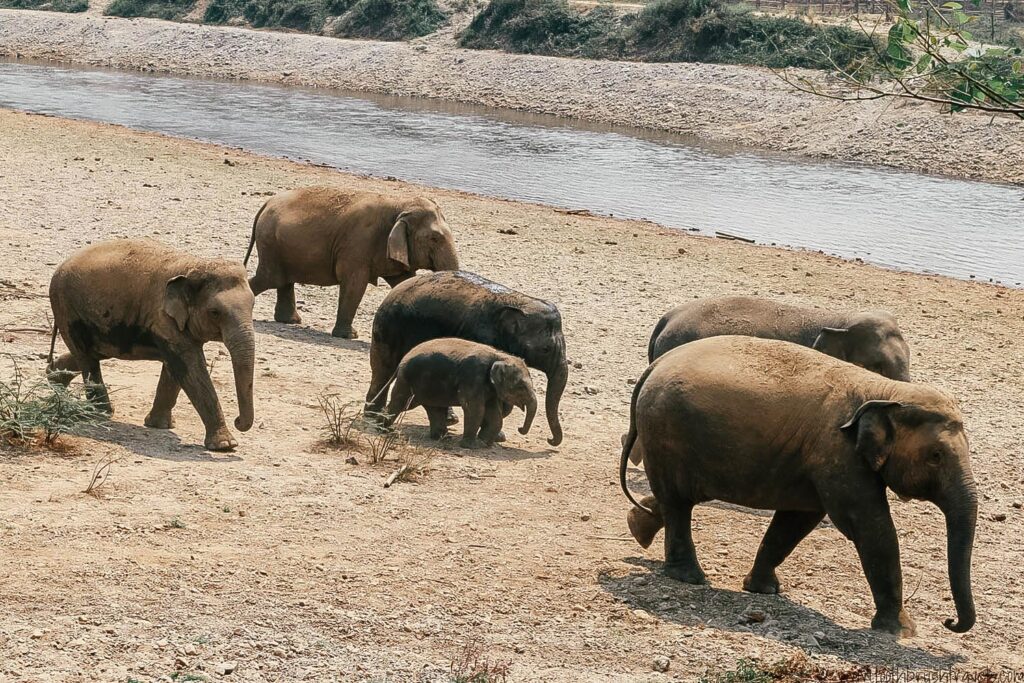
And whilst a few won’t want to participate, the beauty is those that do get to experience the magic of the Elephant Nature Park. They get to experience elephants like nowhere else in the world. They get to see elephants and be proud of where they saw them, and they get to go home knowing that every penny of the money they paid to go there, is put straight back into the park.
The Elephant Nature Park was the most magical place I have ever been to. A place free of chains, and fences. A place that is free of tourist exploitation and guides. A place where elephants are free to be content.
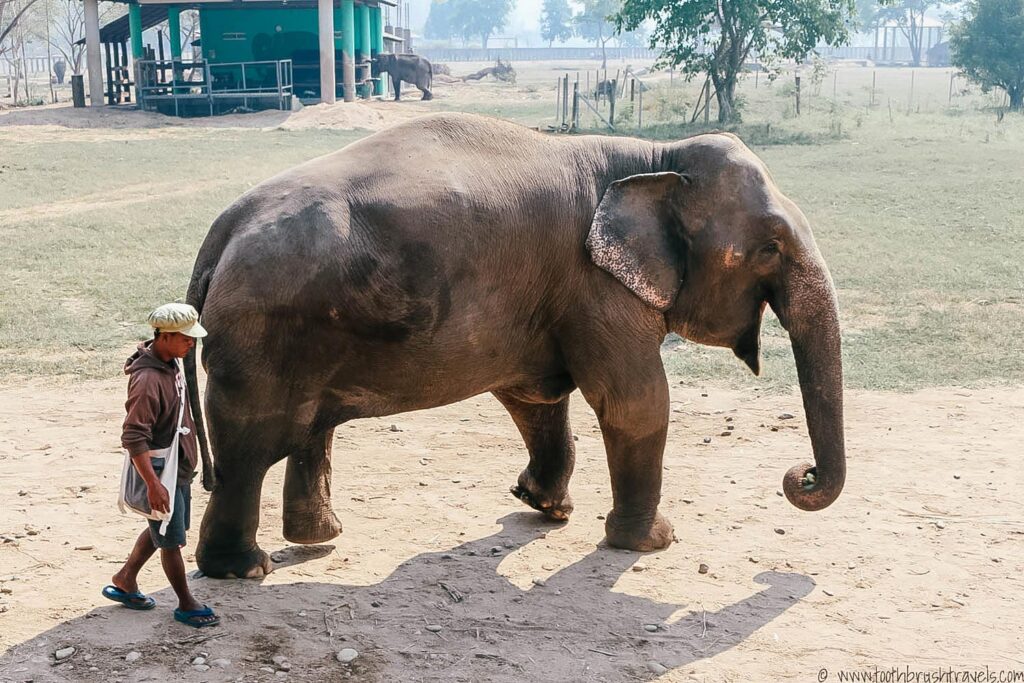
Although I only spent one day volunteering at the Elephant Nature Park, it was one of the most intense, eye-opening and profound experiences of my life. So please, if you’re visiting Thailand, don’t help in the exploitation of animals. Think twice. Support somebody that genuinely cares, and even if you can’t, help support this incredible organisation by spreading the word.
Elephants are facing so many struggles these days that it seems impossible to think that you could help to right these wrongs, (especially when there are so many supporting the opposition), but you can, and Elephant Nature Park shows that it is possible.
It’s possible to give an elephant back to themselves. It’s possible to save elephants from a life of hardship. It’s possible to be close to them without having to exploit them. It’s possible to make smart choices. And it’s possible, just possible, that after spending time at the Elephant Nature Park, you may just fall in love with them that little bit more.
You can find out more information about Elephant Nature park by visiting their website.
